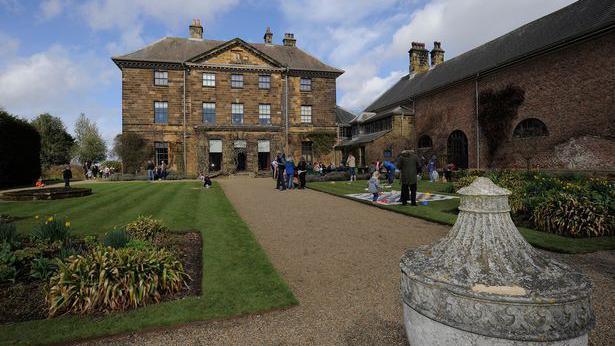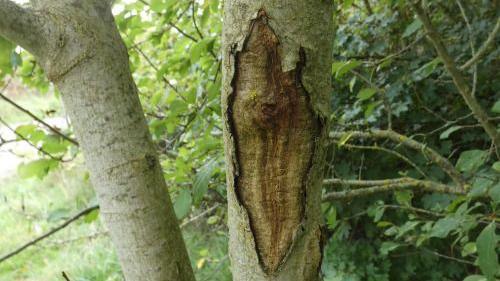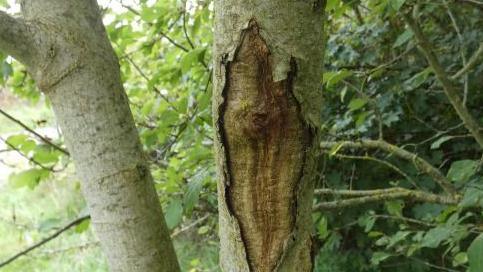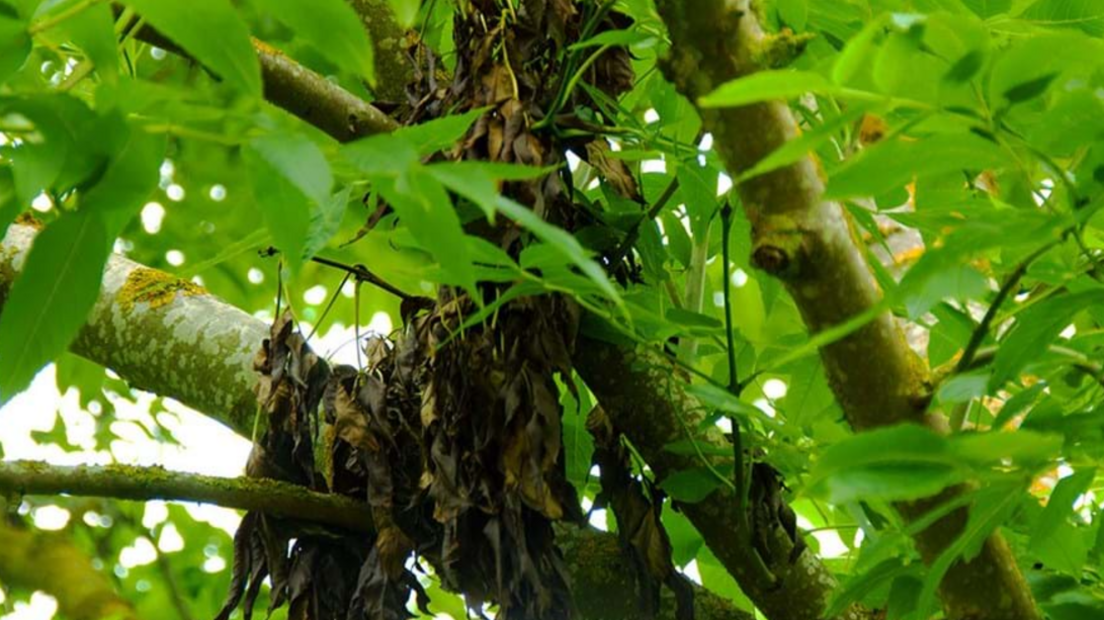A hundred trees to be felled at historic hall

Felling of trees suffering from ash dieback disease will begin this month
- Published
Work will begin to fell a hundred trees suffering from ash dieback disease on a historic estate during nesting season.
The National Trust, which manages Ormesby Hall in Middlesbrough, was granted planning permission for the work to begin in January, but it was pushed back for an ecology assessment to be carried out.
The trust said it was satisfied with measures in place to protect wildlife and described how the trees potentially posed a risk to the public should they become too weak and collapse.
The disease is a fungus which infects ash trees, attacking leaves and branches, causing lesions, and eventually leading to their death.
Mark Bradley, countryside manager with the National Trust, told the Local Democracy Reporting Service (LDRS) that "it was not ideal" to be carrying out the work during nesting season.
He said there was a benefit to carrying the work out during the drier season and that exclusion zones had been set up around nesting sites.

Ash dieback disease attacks trees and can lead to their deaths
"To manage risks, before we began the tree work, we assessed the site and considered what needed doing against the potential impacts on wildlife and the environment.
"We also do what we reasonably can to avoid disturbing or damaging birds' nests," he said.
Most of the trees affected on the estate had been planted in Pennyman's Woods in the 1980s.
However, some older trees running along the nearby roadside, were probably more than 200 years old but would also have to come down.
Mr Bradley said: "As Europe's largest conservation charity, we take all our work of this nature extremely seriously and operate to what we believe are the highest standards.
"Our risk management of nest sites is above and beyond the norm."
Follow BBC Tees on X,, external Facebook, external, Nextdoor and Instagram, external.
Get in touch
Do you have a story suggestion for BBC Tees?
Related topics
- Published8 December 2024

- Published28 November 2024
